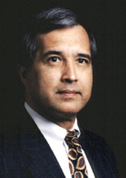© 2014 The Texas Lawbook.
By Gregory G. Hesse and Cameron W. Kinvig – (July 29) – Bankruptcy practitioners are well aware of the controversial 1998 Fifth Circuit decision in Pro-Snax Distributors, Inc., which required professionals to show their services resulted in an “identifiable, tangible, and material benefit to the estate” before those services would be compensable under Section 330 of the Bankruptcy Code.
Since then, many courts have wrestled with the hindsight-focused test espoused by Pro-Snax, and the fact this test is seemingly at odds with the plain language of Section 330. After approximately sixteen years, a Fifth Circuit panel in Woerner v. Texas Skyline, Ltd. seems to be urging an en banc review of the decision and for the Fifth Circuit to adopt a new approach.

The Woerner Bankruptcy Case
In May, 2010, Clifford Woerner hired Barron & Newburger, P.C. to assist him in filing a voluntary petition for Chapter 11 relief on the eve of having a significant state-court judgment entered against him.
Certain of Woerner’s creditors strenuously objected to his bankruptcy, and filed various adversary proceedings and contested matters in an effort to enforce the state-court judgment.
Because the bankruptcy court found that Woerner had been less than forthright in making certain personal property disclosures, it eventually converted his case to one under Chapter 7.
B&N alleged it provided $134,800 in legal services to Woerner during the course of the bankruptcy case, and sought reimbursement of that amount through a fee application.
The bankruptcy court conducted a hearing on B&N’s fee application, and awarded B&N all claimed expenses, but only $19,409.00 in fees—an 85% reduction.

As pointed out by the Fifth Circuit panel, “most of the disallowed fees were denied due to B&N’s lack of success. Specifically, the bankruptcy court found much of B&N’s billed time was not of identifiable benefit to the estate.”
On appeal, B&N argued that the bankruptcy court should have applied either a “business judgment approach,” or a “prospective approach” to determine the propriety of fees under Section 330, and should not have applied the “hindsight” test espoused by Pro-Snax.
Opinion of the Court
Judge Prado, writing for the Court, succinctly stated that “any argument that Pro-Snax was wrongly decided is irrelevant to the key question before us: whether the bankruptcy court erred by applying the wrong standard.”
Quoting the district court, he noted that “[W]hether ‘Pro-Snax was a wrongly decided, errant opinion . . . is an argument properly addressed to higher tribunals,’ but Pro-Snax is still the governing standard.”
Thus, the Court affirmed the lower-court decision on B&N’s fee application, and found it did not abuse its discretion in relying on Pro-Snax.
Judge Prado’s “Special Concurrence”
In a strange procedural irony, however, Judge Prado also drafted a “special concurring opinion,” to which Judges Reavley and Owen each joined.

Photo courtesy of the University of Texas
In his special concurrence, Judge Prado notes “that the Pro-Snax standard may be misguided,” arguing that “it appears to conflict with the language and legislative history of § 330, diverges from the decisions of other circuits, and has sown confusion in [the Fifth] circuit.”
Observing that “the plain language of § 330 runs counter to Pro-Snax’s holding,” Judge Prado states that “Section 330 . . . explicitly contemplates compensation for attorneys whose services were reasonable when rendered but which ultimately may fail to produce an actual benefit.”
Quoting the Seventh Circuit, Judge Prado notes that “[l]itigation is a gamble, and a failed gamble can produce a large net loss even if it was a good gamble when it was made.”
But, Judge Prado recognizes that Section 330 not only “permits a court to compensate an attorney for any activities that were ‘necessary,’ but also for any good gambles—that is, services that were objectively reasonable at the time they were made—even when those gambles do not produce an ‘identifiable, tangible, and material benefit.” He goes on to state that “what matters is that, prospectively, the choice to pursue a course of action was reasonable.”
Judge Prado then provides a lengthy analysis of Section 330’s legislative history, noting that “the drafting history of [Section 330] suggests that Congress considered and specifically rejected an actual benefit test.”
Recognizing that “the actual benefit test of Pro-Snax has put [the Fifth] circuit in unnecessary conflict with [its] sister circuits,” Judge Prado also notes that the opinion has led to confusion among courts within the Fifth Circuit as well.
Correctly pointing out that “the splintered approaches to applying Pro-Snax underscore the difficulty of squaring that decision with the statute” he urges the Fifth Circuit to reconsider the Pro-Snax standard en banc.
Practitioners within the Fifth Circuit can only hope that the Fifth Circuit, sitting en banc, takes Judge Prado’s suggestion to heart. Throughout its 16-year life, Pro-Snax has seemingly moved the Fifth Circuit into the fringe of bankruptcy jurisprudence.
A more balanced approach—based on the plain language of Section 330—will do much to clarify the issue, and is certainly needed.
Gregory G. Hesse is a partner in the Bankruptcy, Restructuring and Creditors’ Rights Practice at Hunton & Williams in Dallas. Cameron W. Kinvig is an associate in the same section at Hunton & Williams.
© 2014 The Texas Lawbook. Content of The Texas Lawbook is controlled and protected by specific licensing agreements with our subscribers and under federal copyright laws. Any distribution of this content without the consent of The Texas Lawbook is prohibited.
If you see any inaccuracy in any article in The Texas Lawbook, please contact us. Our goal is content that is 100% true and accurate. Thank you.
